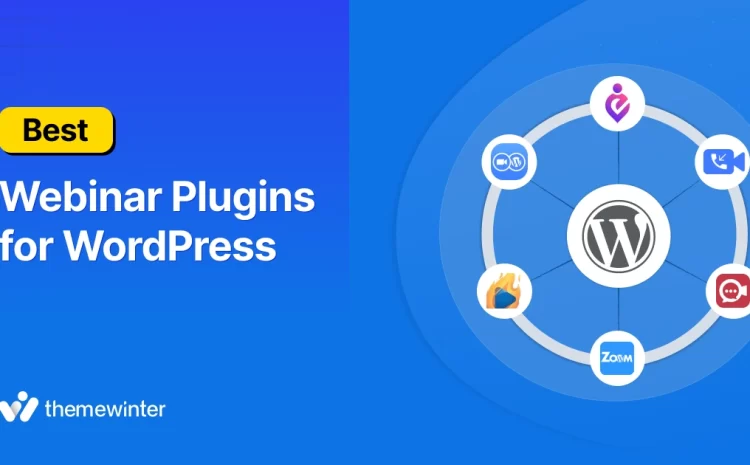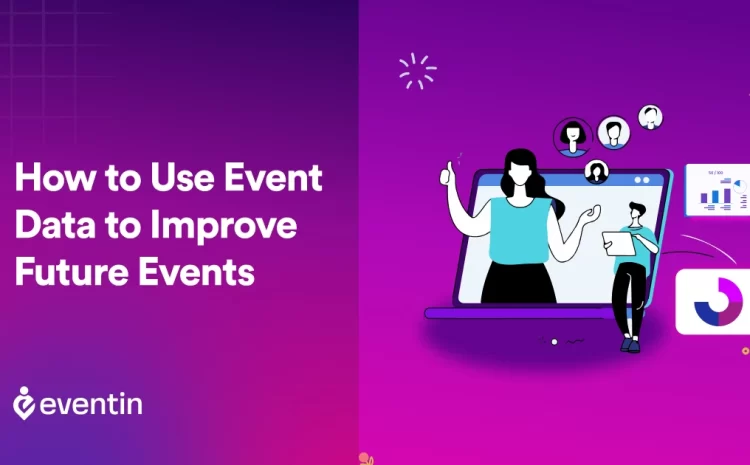Hybrid Events in 2025: How Event Organizers Can Host Successful Hybrid Experiences

Table of Contents
The way we attend events has changed a lot over the past few years. What started as a quick shift to virtual meetups has turned into something more flexible and long-term.
Now, in 2025, hybrid events have found their place as a regular part of how people connect, learn, and share ideas. This setup has opened new doors for organizers and attendees alike.
But what makes hybrid events stand out in 2025? What’s driving their growth? And how can organizers make the most of this format without overcomplicating things?
In this post, we’ll look at what hybrid events really are, what’s fueling their rise of hybrid events, and how to create a hybrid event that works well for everyone involved.
Let’s dig in.
🎯 Quick Summary
This guide covers the rise of hybrid events in 2025, showing why they’ve become the new normal and how to host one using WordPress and the Eventin plugin.
- What hybrid events are and why they matter in 2025
- Key trends like AI, AR/VR, sustainability, and data-driven engagement
- Top benefits for both organizers and attendees
- How to create hybrid event using Eventin plugin for WordPress
- Killer hybrid event strategies
- Challenges of hybrid events—and how to solve them
- A look at the future of hybrid event platforms beyond 2025
What exactly are hybrid events
A hybrid event is a combination of both an in-person event and a virtual event. It’s not just a livestream with a few extras. It blends both in-person and online experiences so attendees can join in the way that works best for them, whether they’re at the venue or tuning in from home.
For example, imagine a business conference. Some guests attend in person, listen to talks, and join group discussions. At the same time, online attendees can watch the same talks through video, join breakout rooms, and even chat with speakers through a live Q&A.
Hybrid events have been around for a while, but they’ve come a long way since 2020. Back then, many were put together quickly as a workaround. Today, they’re part of the plan from the start, with tools and platforms built specifically to support them.
Why hybrid events are growing
A few years ago, hybrid events were mostly a backup plan. Now, they’re becoming the default for many organizers and for good reasons.
One big reason is reach. With a hybrid setup, you’re not limited by geography. People can join from anywhere, which helps bring in a broader audience. That’s especially helpful for international events, or for folks who can’t travel for one reason or another.
Technology is also better now. It’s easier to stream events, run live polls, offer chat rooms, or host breakout sessions online now. Tools like Zoom, Google Meet, or custom platforms help bring both sides online and offline into one space.
There’s also the question of cost. For some organizations, running a hybrid event can actually be more efficient. You still need a venue, but you don’t need to scale it as large. At the same time, you’re offering value to more people.
Finally, work habits have changed. Remote and flexible work is normal now. So, people expect the same flexibility from events, too. If they can learn, connect, or join a session without booking a flight, many will take that option.

Emerging hybrid event trends shaping 2025
As more event organizers lean into hybrid formats, a few clear trends are starting to shape how these events are planned and delivered. These trends aren’t just about technology; they’re also about how people prefer to connect and participate.
Let’s explore some of the top hybrid event trends that have been brought to the table so far.
- AI-powered personalization: Platforms now suggest sessions, contacts, or booths based on what attendees like, so they don’t have to search through everything themselves.
- Immersive tech: Virtual attendees can explore 3D expo halls, watch live talks, or try product demos using AR or VR, making things feel more real.
- Data-driven engagement: During sessions, organizers can run live polls, collect survey responses, or monitor questions coming in from both live and online audiences.
- Sustainability push: Hybrid events are often better for the planet. With fewer people traveling and less need for printed materials, they cut down on waste and emissions.
- Multi-platform streaming: Organizers often use Zoom, YouTube, Facebook, and other platforms at the same time. With tools like Eventin, it’s easy to sync your schedule, handle Zoom integration, and keep everything in one place.
- Increase in micro events: Not every event needs to be a huge conference. We’re seeing more bite-sized events: short panels, targeted workshops, and smaller networking groups.
Benefits of hybrid events for organizers
The benefits of hybrid events go beyond just flexibility; they create opportunities for better engagement, reach, and ROI.
- Built-in flexibility: If anything changes last-minute, weather, restrictions, or travel issues, you’re not stuck. A hybrid event gives you a backup plan. You can shift focus toward virtual attendees and keep the event running with minimal disruption.
- Flexible monetization: Organizers now have more ways to earn from events. You can offer tiered tickets, basic access for free or a fee, and premium options for extras like exclusive sessions or in-person perks.
- Better return on investment (ROI): With lower venue costs, fewer travel-related expenses, and more data to work with, hybrid events can deliver more substantial returns. You get more reach and more feedback without increasing your overhead.
- Stronger sponsorship opportunities: A broader audience and cross-platform exposure make your event more appealing and make it easy to get sponsorship. You can offer both on-site placements and digital ones, ads during livestreams, branded breakout rooms, etc.
Benefits of hybrid events for attendees
Hybrid events aren’t just helpful for organizers; they’re often a better experience for attendees, too. The format gives people more control over how they join and what they get out of the event.
- Flexible participation: As we said before, hybrid events remove the barrier of location. People who can’t attend in person because of cost, travel time, or personal schedule can still join virtually. That means more sign-ups, more engagement, and often, more leads.
- On-demand access: Many hybrid events offer recordings after the sessions are over. So if someone can’t join live, they can still watch everything later. That’s a big win for people in different time zones.
- Networking opportunity: Good hybrid events are designed with networking in mind. That could mean breakout rooms, live chat, or tools that suggest connections based on shared interests. Attendees can meet new people and take part in discussions, whether they’re physically at the venue or attending remotely.
- Reduced travel and costs: Joining remotely means saving money on flights, hotels, meals, and transit. For many attendees, that makes it easier to say yes to an event they might otherwise skip.
How to create a hybrid event with Eventin
Running a hybrid event means thinking about two different audiences: those in the room and those watching from a screen. With the Eventin plugin, you can manage both without needing to juggle multiple platforms.
Before setting anything up, decide how the event will work for both in-person and virtual attendees.
Simply, ask yourself:
- Which sessions are shared, and which are unique to each group?
- Will online attendees get Q&A access, polls, or networking options?
- Can virtual guests rewatch sessions later?
Tailoring the experience up front helps you avoid a one-size-fits-all setup and gives both groups something valuable.
Here’s how to host a hybrid event with Eventin, step by step:
5 Killer hybrid event strategies
Knowing what a hybrid event is only gets you halfway there. To really stand out and keep both your in-person and online audiences engaged, you need smart, actionable strategies. Here are some proven approaches you can use to make your hybrid events a success:
- Make engagement interactive: Hybrid events work best when they encourage participation. Use live polls, Q&As, or breakout rooms that include both physical and virtual audiences. This ensures no one feels left out.
- Master smart scheduling: Hybrid events often attract a global audience. Solve time-zone challenges by offering on-demand recordings through your event calendar or hosting repeat sessions at different times.
- Offer tiered ticketing options: Create multiple ticket levels—free access for general sessions, and paid VIP tickets for exclusive content, meet-and-greets, or special perks. With Eventin’s built-in ticketing system, it’s simple to set this up on your WordPress site.
- Streamline check-ins: Use QR code check-ins for onsite guests to reduce lines and manual errors, while sending automated email confirmations and reminders for online attendees to minimize no-shows.
- Leverage data for follow-ups: After the event, dive into attendance and engagement reports. With Eventin’s dashboard insights, you can personalize your follow-up emails, improve future planning, and maximize ROI.
Challenges of hybrid events (with solutions)
While hybrid events offer a lot of advantages, they also come with their own set of challenges. The good news? Most of these can be solved with the proper planning and tools.
Here’s a look at the common hurdles and how to work around them:
1. Keeping Both Audiences Engaged
It’s easy to focus more on the people in the room and forget about the virtual crowd. But online attendees can lose interest quickly if they feel like observers instead of participants.
Solutions: Design activities for both groups. Use live polls, Q&A sessions, and breakout rooms that include in-person and virtual guests. Make sure your host or moderator acknowledges and interacts with the online audience regularly.
2. Tech glitches
From laggy livestreams to failed screen shares, tech issues can derail the experience for virtual attendees. And once things go wrong, it’s tough to recover that attention.
Solutions: Test everything ahead of time, your internet, camera, audio, platform, and backups. Have a tech support person or team on standby during the event, and provide a simple guide for attendees to troubleshoot common issues.
3. Scheduling across time zones
When you’re inviting people from around the world, it can be tricky to find a time that works for everyone.
Solutions: Offer on-demand access to key sessions, so attendees can watch when it suits them. Consider repeating popular sessions at different times or hosting smaller regional events to reach different audiences more easily.
4. Higher planning needs
Running two experiences, one in-person, one online, can feel like double the work.
Solution: Plan with a hybrid in mind from the start. Set clear roles for your team. Use one dashboard to manage both sides of the event. Eventin lets you create an event page, manage schedules, speakers, and send updates all in one place.
5. Budget balance
How much should you spend on the physical setup vs. the online side?
Solution: Set clear goals. If most of your audience will attend online, put more budget into your streaming setup and virtual engagement. If it’s an even mix, keep both sides balanced.
Future of hybrid events beyond 2025
Hybrid events are already a key part of the event space, but they’re still evolving. Looking ahead, we can expect to see more changes not just in technology, but also in how people connect, learn, and interact.
Here are a few directions things are heading:
1. AI-driven networking and matchmaking
AI tools will continue to improve how events adapt to each attendee. Expect smarter recommendations for sessions, more accurate networking suggestions, and personalized content delivery based on real-time behavior, not just sign-up forms.
2. Integration with the metaverse and virtual spaces
As AR and VR become easier to access, virtual attendees may be able to “walk through” event spaces, explore booths, and interact with others in more realistic ways. We’re not far from a world where remote participation feels less like watching and more like being there.
3. Always-on event platforms
Instead of one-time events, organizers may begin building ongoing event ecosystems. These could include community forums, quarterly hybrid meetups, a multivendor event marketplace, and access to archived content year-round, turning a single event into a lasting experience.
🛍️ Multivendor Hybrid Event Model
In a multivendor model, multiple organizers can host their own hybrid events within a shared platform. Think of it like an event-based version of an eCommerce marketplace—each “vendor” runs their own live or virtual session, while attendees browse and register through a unified portal.
Want to know how to create one? Check this guide.
4. Tighter integration with everyday tools
Hybrid events will blend even more seamlessly with tools people already use, like calendars, messaging apps, or CRM platforms. Joining, networking, and following up could all happen within the apps attendees already have.
5. Stronger focus on accessibility and inclusion
The flexibility of hybrid formats is already making events more accessible, but there’s still room to grow. Captioning, sign language interpretation, language translation, and adjustable user interfaces will likely become standard, not optional.
6. More sustainable planning
Organizers will continue looking for ways to reduce waste and carbon emissions. Hybrid events make that easier, and going forward, many will be designed with sustainability goals in mind, from virtual swag to eco-friendly venues.
The future of hybrid events will bring new ways for people to connect, learn, and share ideas.
Conclusion
Hybrid events have come a long way, and in 2025, they’re not just filling a gap between in-person and virtual. They’re shaping a more flexible, accessible, and sustainable way for people to connect.
For organizers, hybrid events mean lower costs and a bigger reach. For attendees, they bring more choice and better access. And with tools like Eventin, running a hybrid event doesn’t have to be complicated.
If you’re looking for a reliable hybrid event platform for WordPress, Eventin offers the complete toolkit for managing schedules, ticketing, and virtual integrations. Now it’s your move.
Want to make your next event hybrid-ready? Explore Eventin.
1. Common Event Management Challenges and Solutions for Event Planners
2. Proven Ways to Increase Event Revenue with Eventin Features
3. Best Booking Plugin in WordPress Website [Free & Pro]
4. Best WooCommerce Plugins to Increase Sales

